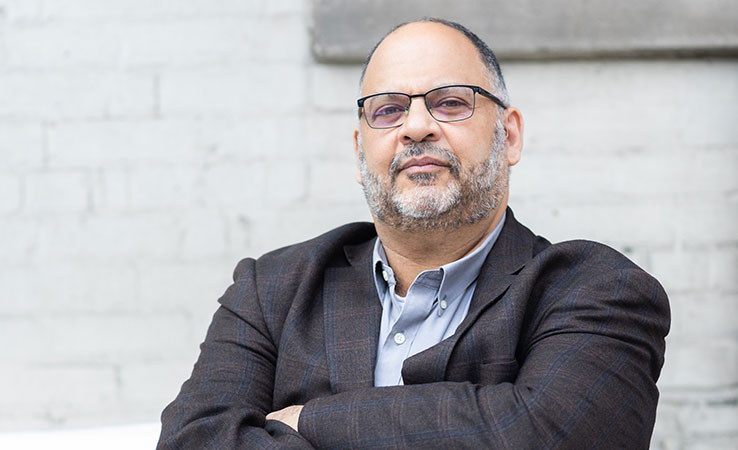Dr. Annalise Trudell has witnessed the pandemic deepen fault lines across society. As a gender-based violence (GBV) researcher and manager of education, training and research at ANOVA — London, Ontario’s women shelter and sexual assault service provider — Trudell, has seen first-hand the unique challenges and complications brought on by COVID-19.
“From the starting line, we were behind,” she says. “As a GBV sector, we seem dispensable. When there are cuts to be made, we seem to be first up.”
Trudell — who works closely with shelters and rape crisis centres across Ontario — sees how GBV hasn’t kept pace with better-resourced front-line sectors. With the arrival of COVID-19, this reality left the GBV workforce in a precarious situation. “When the pandemic hit, the system just broke open,” she says.
…Dr. Ahmed Bayoumi, physician and scientist with the MAP Centre for Urban Health Solutions at St. Michael’s Hospital, is… conducting research to better understand community responses to the pandemic, across a variety of marginalized populations.
“Our society is not structured in such a way that everyone who needs resources gets access to those resources,” he says. “Health inequities have been highly prevalent for a very long time. And what this pandemic has done is exacerbated them and made them more obvious. It has shown we weren’t well prepared to deal with many of these.”
Using a collaborative, mixed-methods, community-engaged model, Bayoumi and his research team have been working with community organizations serving marginalized groups to determine what is working well during COVID, what can be improved upon, and what can be implemented elsewhere.
One of the projects Bayoumi is evaluating focuses on violence against women. Through engagement of those with lived experience, the study seeks to understand how some Toronto-based GBV organizations have adapted to the pandemic, how contextual factors have influenced processes, and how service adaptations have affected both staff and survivors.
He believes this type of evaluative research will produce positive solutions for those experiencing the greatest need, and quickly. “I’m always hopeful,” he says. “Working with communities committed to change is always invigorating. We are putting forth a tremendous amount of energy and effort to make a change.”

